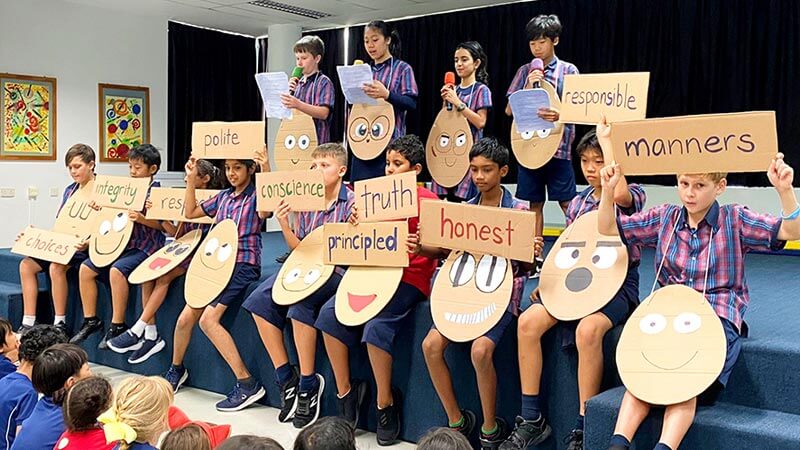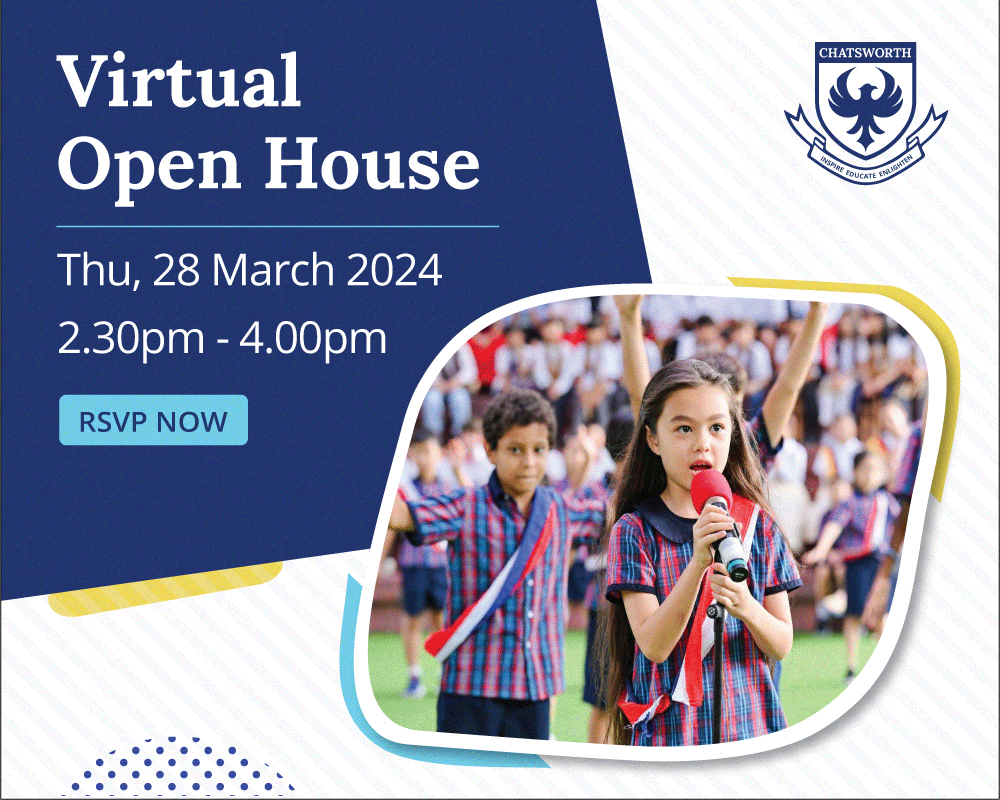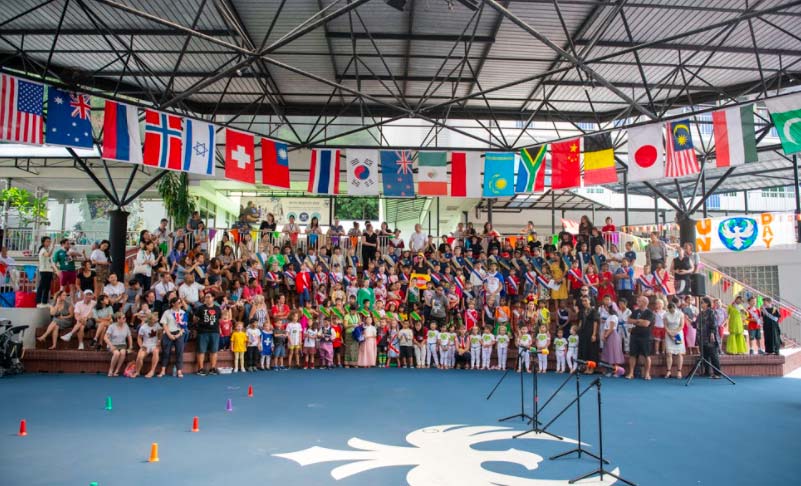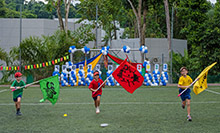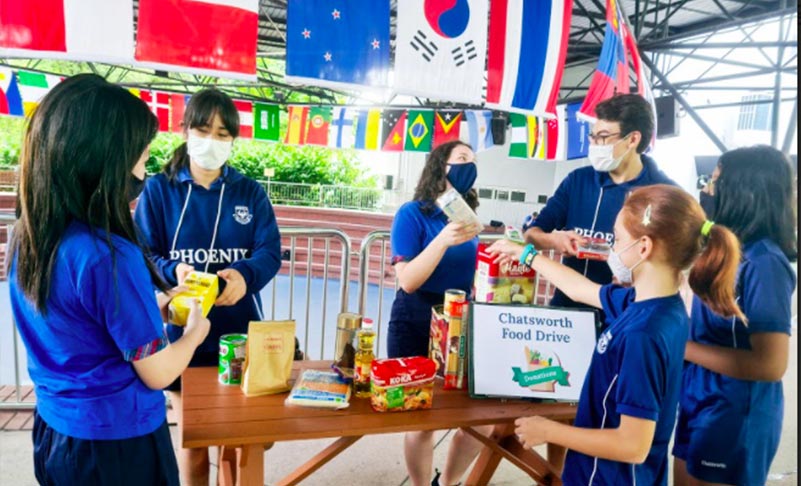
International Primary School
International Primary School
Primary School at Chatsworth International School caters to students in Singapore from Year 1 through Year 6 (Grade 5), ages 6 to 11 years old. The curriculum follows the internationally recognised International Baccalaureate Primary Years Programme (IB PYP), an educational framework that is differentiated to meet the individual needs of each of our students.
The curriculum encourages them to engage in questioning, collaboration and problem-solving. It also guides them to lead investigations to develop essential learning and personal development skills whilst at the same time fostering intercultural understanding and respect from an early age.
Building on skills and attributes gained in kindergarten, students are encouraged to take ownership of their learning, creating rich inquiries and achieving personal and academic goals. As students progress through the year levels, they mature as leaders, taking responsibility for school projects, action groups and community events.
The final year of primary school culminates in a PYP Exhibition, a significant event that showcases students’ application of PYP transdisciplinary skills and celebrates their learning achievements throughout their primary education.
Chatsworth International School's primary education offers the internationally recognised IB PYP to students in Singapore. This programme emphasises a well-rounded approach, blending essential knowledge and skills with the development of positive attitudes and responsible actions. It focuses on the development of the whole child as an inquirer both inside the classroom and beyond.
We focus on making learning engaging, relevant, challenging and significant, catering to the diverse needs of the students through the PYP. This approach, informed by the values in the IB learner profile, helps our students to apply knowledge in real world contexts, creating powerful and memorable learning experiences.
| Subject Disciplines |
English |
English as an Additional Language (EAL) |
Mathematics |
Science |
Social Studies |
Mandarin (K1 and K2) |
Arts (Drama, Music and Visual Art) |
Personal, Social and Physical Education |
Library (Literacy and Research Skills) |
Digital Citizenship/ Keeping Safe Curriculum |
Building a meaningful school-home connection is very important to us. Our primary teachers communicate with parents weekly via email and the school shares important information relating to school and programmes through electronic letters and newsletters.
Assessment is important in our programme, where we understand the prior knowledge and experience students already have, assess their progress throughout the units of inquiry and assess their final understanding. Teachers formally give feedback to parents regarding the progress of our learners in a report at the end of each school semester. Parent-Teacher-Student conferences (PTSCs) are held twice a year. Each student’s digital portfolio is updated regularly by homeroom and single-subject teachers.
Parents are encouraged to attend their child’s learning exhibitions, student-led conferences and performances throughout the year and meet with teachers on a needs basis as concerns or issues arise. In addition to planned parent participatory sessions, we encourage parents to get involved in their child’s education at school by visiting the classroom to assist with activities or lessons, watching performances or helping with field trips. Our open-door policy provides parents the opportunity to meet with teachers at mutually convenient times to discuss their child's progress.
How is the IB PYP different from other primary or elementary-level curricula?
(Please note that the table below highlights the key features of the PYP relative to other curricula. It is not a detailed breakdown of other curricula).
| IB PYP | Other Curriculum Models |
Promoting integrated transdisciplinary subjects and curriculum | Teaching subjects as isolated strands |
Development of the whole child | Development of purely academic knowledge |
Inquiry-based curriculum focusing on student and teacher questions | Content-based curriculum based on predetermined knowledge |
PYP teachers who teach specialised subjects | Single Subject teachers solely teach subject knowledge |
Real-world learning in context | Drills and workbooks to learn |
Making mistakes as being necessary for learning | Focus on encouraging students not to make mistakes |
Reading for comprehension, meaning and interest | Reading to merely decode as quickly as possible |
Culturally diverse resources | Resources only from home country |
Encouraging cooperative discussions facilitated by the students | Enforcing silent and individual work facilitated by the teacher |
Teacher as facilitator of learning | Learning to create a product |
Reliance on self and peers for some learning | Sole reliance on the teacher for learning |
Using a range of multimedia resources in the classroom | Providing print only texts for reading and research |
Finding many correct answers | Finding one correct answer |
Students appreciating a range of valid perspectives and ideas | Rote learning, memorisation and repetition |
Knowledge is one of five essential curriculum elements | Knowledge is the only essential curriculum element |
Skills for life are embedded into the curriculum | Skills not seen as necessary for immediate learning |
Attitudes towards learning are developed and assessed | Limited range of student behaviours are encouraged |
Many forms of assessment including portfolios, rubrics and checklists | Assessment feedback provides merely letters or percentage grades |
Learning as a process | Teacher as knowledge expert |
International mindedness | One national or local perspective |
Features of Chatsworth's IB Primary Years Programme
- Focus on the development of the whole child.
- A personalised approach made possible by our small class sizes.
- Inculcate an inquiry mindset and skills where students are involved in and take ownership of their learning.
- Provide diverse experiential learning opportunities for students to apply knowledge in real-world contexts.
- Develop intercultural understanding and awareness, empathy and global mindedness through service learning and a variety of programmes.
- Celebrate the results and action of learning throughout primary years with a culminating PYP exhibition.
